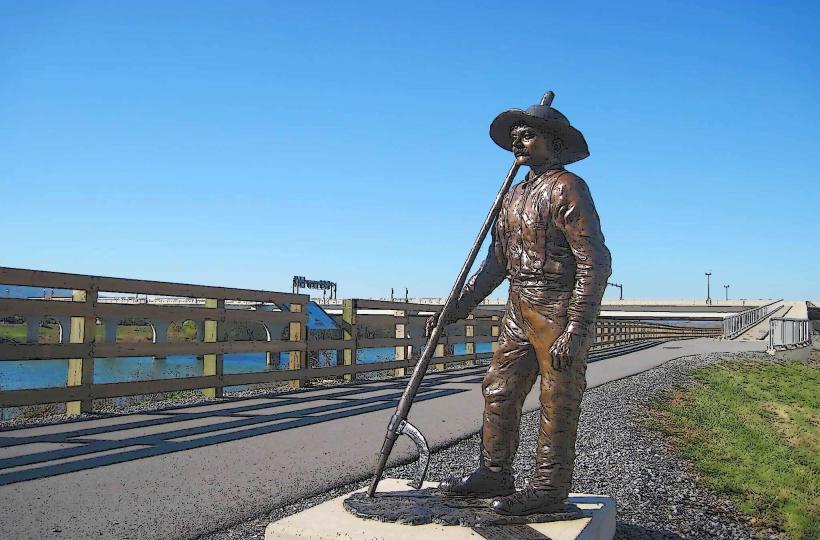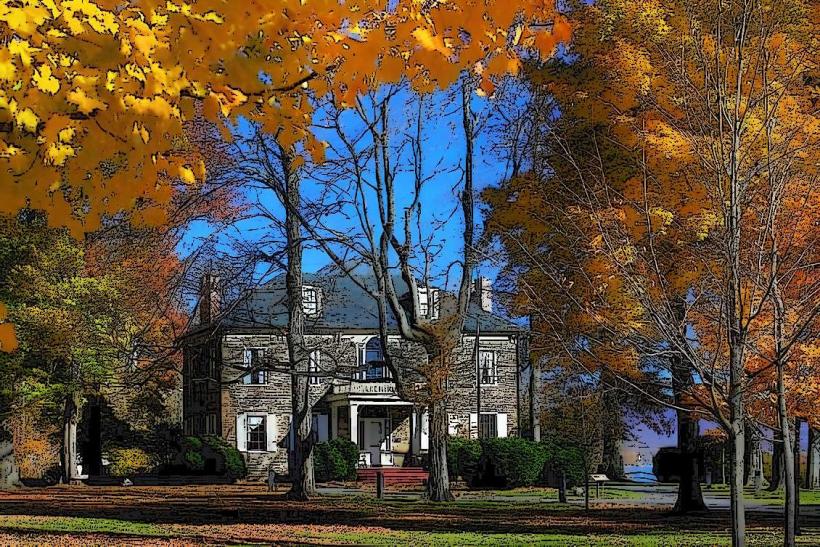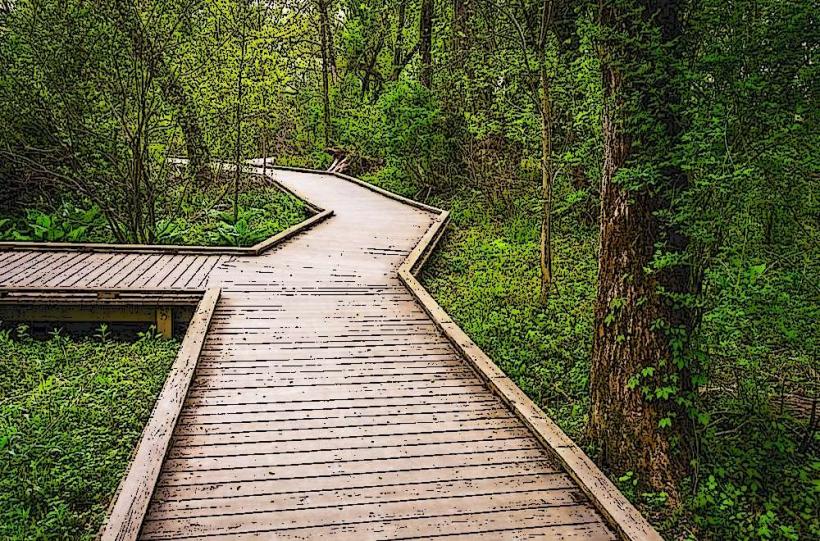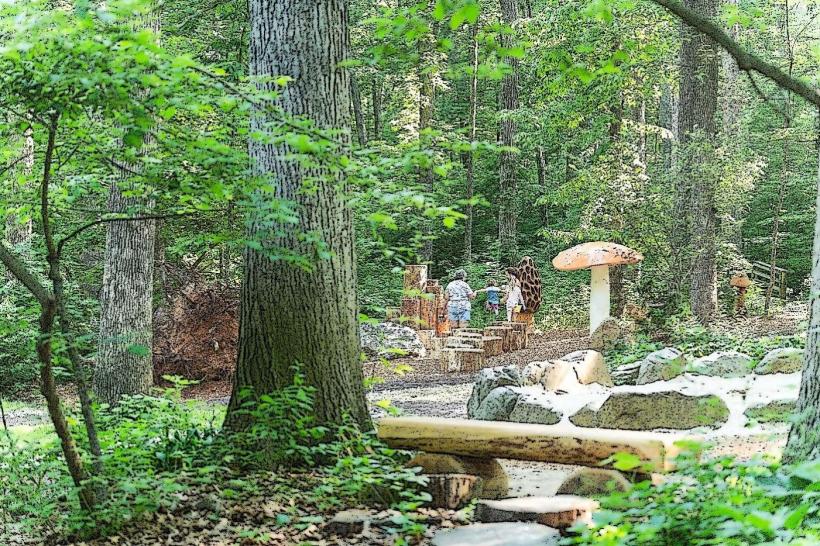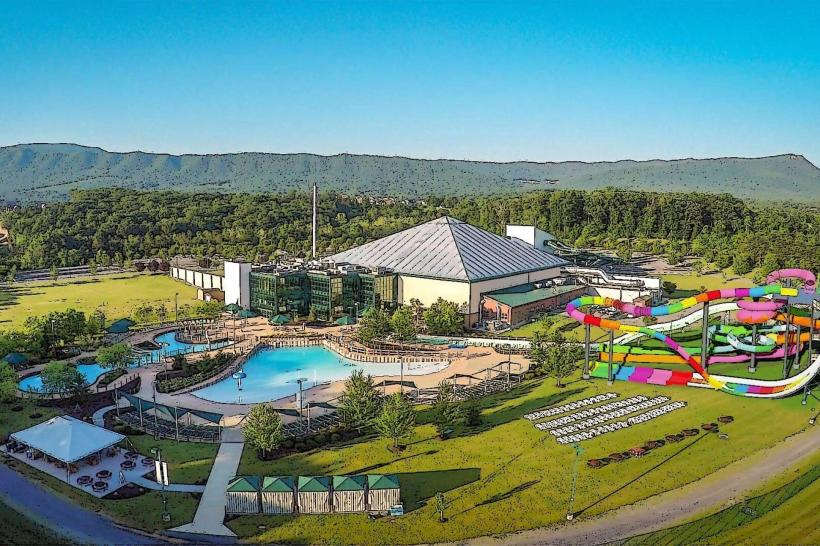Information
Landmark: George Washington National ForestCity: Harrisburg
Country: USA Virginia
Continent: North America
George Washington National Forest, Harrisburg, USA Virginia, North America
George Washington National Forest is a vast and historically significant protected forest area located primarily in the western part of Virginia and extending into eastern West Virginia. It covers over 1.1 million acres, making it one of the largest national forests in the eastern United States. This forest is managed by the U.S. Forest Service and offers a remarkable blend of natural beauty, outdoor recreation, and ecological diversity, making it an essential destination for nature lovers, hikers, campers, hunters, and conservationists.
Location and Geography
The forest stretches across the rugged terrain of the Appalachian Mountains, specifically the Blue Ridge and Allegheny Mountain ranges. It spans several counties in Virginia, including Rockingham, Augusta, Page, and Highland, as well as parts of West Virginia. The landscape is characterized by steep ridges, deep valleys, and high mountain peaks, including some of the highest elevations in the region such as Reddish Knob and Elliott Knob.
The forest is contiguous with the Jefferson National Forest in West Virginia, and the two are often collectively referred to as the George Washington and Jefferson National Forests. Together, they form one of the largest federally managed forest areas east of the Mississippi River.
Natural Environment and Ecology
George Washington National Forest encompasses diverse ecosystems, including dense hardwood forests dominated by oak, hickory, maple, and chestnut trees. There are also pockets of coniferous forests, especially at higher elevations, featuring species such as white pine and hemlock.
The forest provides habitat for a rich variety of wildlife, including:
Large mammals such as black bears, white-tailed deer, bobcats, and elk.
Numerous bird species, including wild turkeys, raptors, and songbirds.
Amphibians and reptiles that thrive in the forest’s streams, wetlands, and rocky outcrops.
The forest’s streams and rivers support native trout populations, making it a popular destination for anglers.
Recreation and Activities
George Washington National Forest is renowned for its extensive outdoor recreational opportunities:
Hiking: The forest contains over 1,700 miles of trails, including segments of the famous Appalachian Trail, which runs through the Blue Ridge Mountains within the forest boundary. Trails range from easy walks to challenging backcountry routes, allowing visitors to explore scenic vistas, waterfalls, and remote wilderness areas.
Camping: There are numerous developed campgrounds, as well as dispersed camping options, allowing for both family-friendly and primitive camping experiences. The forest supports backcountry camping for those seeking solitude and rugged adventure.
Hunting and Fishing: The forest is a designated hunting area with seasons for deer, turkey, and other game species. Its many streams and rivers provide excellent fishing opportunities for trout and bass.
Horseback Riding and Mountain Biking: Several trails are open to equestrian use and mountain biking, providing diverse ways to experience the forest landscape.
Scenic Drives and Wildlife Viewing: The forest features scenic byways such as the Blue Ridge Parkway and Skyline Drive nearby, and offers numerous overlooks and picnic areas ideal for observing wildlife and the region’s natural beauty.
Winter Sports: In the winter months, visitors may engage in cross-country skiing, snowshoeing, and winter hiking, though services and access can be limited depending on weather conditions.
Conservation and Management
The George Washington National Forest is managed with a focus on sustainable forestry, habitat preservation, and recreational access. Its management plans balance timber harvesting with ecological restoration, fire management, and invasive species control. The forest plays a critical role in watershed protection, helping maintain clean water supplies for surrounding communities.
Educational programs and volunteer opportunities promote public involvement in conservation efforts and raise awareness about the forest’s ecological and cultural significance.
Cultural and Historical Significance
The forest holds deep historical roots, with evidence of Native American habitation, early colonial settlement, and Civil War activity in its region. The forest’s name honors George Washington, reflecting the area’s ties to early American history. Several historical sites and trails within the forest offer interpretive opportunities related to the region’s past.
Visitor Experience and Facilities
Visitors to George Washington National Forest can access a variety of facilities, including ranger stations, visitor centers, picnic areas, and restrooms at developed campgrounds. The forest’s vastness means some areas are remote and undeveloped, requiring visitors to be self-sufficient and prepared for wilderness conditions.
The forest provides an unparalleled natural setting for those seeking both active recreation and peaceful solitude within a large eastern wilderness area.
Summary
George Washington National Forest is a cornerstone of natural preservation in the mid-Atlantic region, combining immense ecological diversity with rich recreational offerings. Its rugged mountains, extensive trail networks, and abundant wildlife make it a premier destination for outdoor enthusiasts. Managed to maintain its environmental health and accessibility, it continues to serve as a vital resource for conservation, education, and recreation for generations of visitors.





